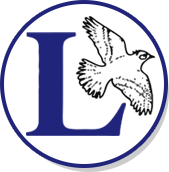Computing
Larkrise Primary School believes computing to be an essential part of a curriculum, which equips children to use computational thinking and creativity to understand the world. Computing plays a significant part of all our daily lives and should therefore be integral to children’s learning both as a standalone subject and also woven into other curriculum areas. We want children to be enthused about computing and equipped with the capability to use technology throughout their lives.
We believe that technology can provide:
collaborative learning opportunities;
better engagement;
easier access to rich content;
develop conceptual understanding and can support the needs of all our pupils, throughout the curriculum.
Computing lessons can provide a wealth of learning opportunities and transferable skills explicitly within the Computing lesson and across other curriculum subjects.
It is our intention to provide an exciting, rich, relevant and challenging Computing curriculum for all pupils, which instils critical thinking, reflective learning and a ‘can do’ attitude for all our learners. We teach pupils to become responsible, respectful and competent users of data, information and communication technology and to equip them with skills, strategies and knowledge that will enable them to reap the benefits of the online world, whilst being able to minimise risk to themselves or others. We encourage opportunities to use technology imaginatively and creatively and to develop computational thinking beyond the Computing curriculum.
On leaving our school, children will have gained key knowledge and skills in the three main areas of the computing curriculum: computer science (programming and understanding how digital systems work), information technology (using computer systems to store, retrieve and send information) and digital literacy (evaluating digital content and using technology safely and respectfully). The objectives within each strand support the development of learning across the key stages, ensuring a solid grounding for future learning and beyond.
